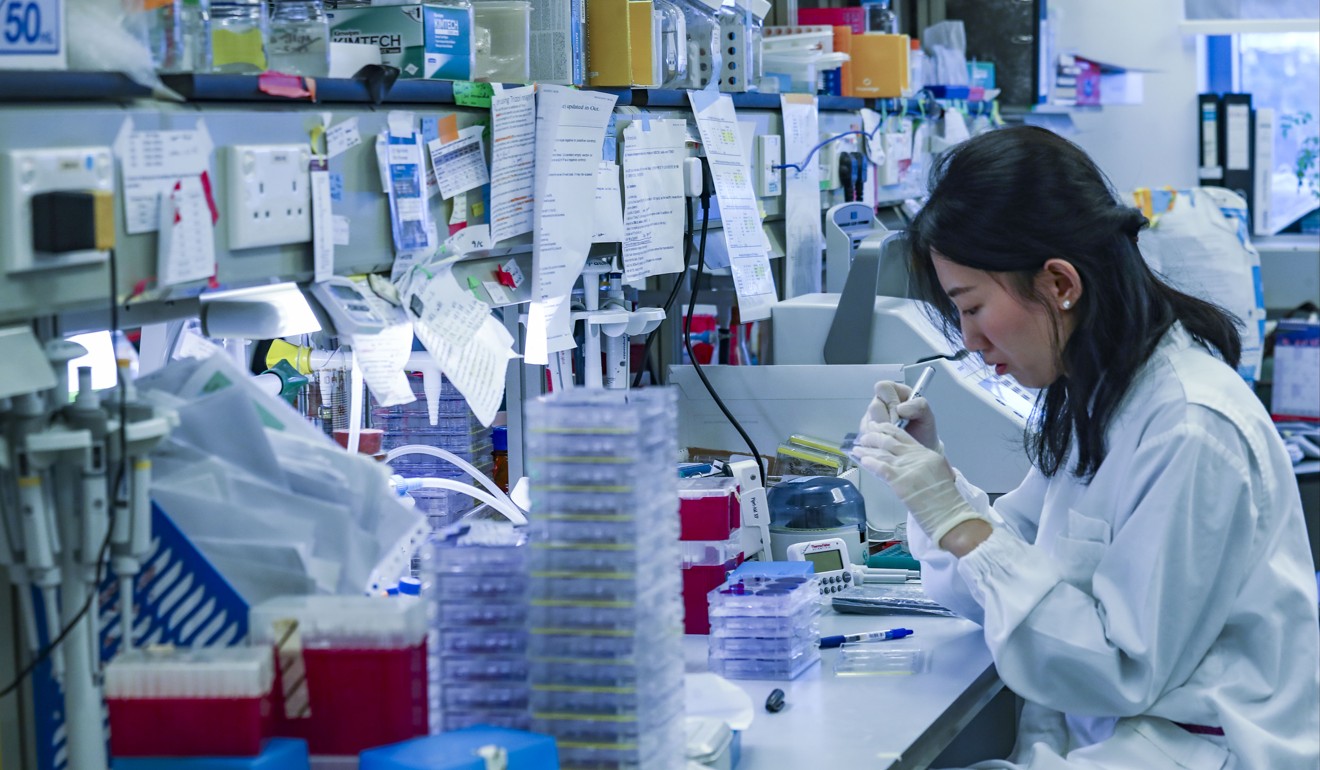
Top Hong Kong disease researchers welcome news that mainland Chinese cash will be made available to city at Xi Jinping’s instruction
Disease researchers buoyed by news of President Xi Jinping’s order on innovation cash, saying extra resources will help them keep top staff for life-saving work
Thirteen years ago, a national laboratory was launched at the University of Hong Kong to do groundbreaking research on emerging infectious diseases as the city got back on its feet from the deadly 2003 outbreak of severe acute respiratory syndrome (Sars).
In the years since, its scientists have laboured away on flu vaccines and cures for other viruses, while looking for other sources of funding that could drive greater innovation.
Microbiologist Chen Honglin, a founding member of the State Key Laboratory for Emerging Infectious Diseases, said the funding would help his lab retain staff for long-term research.
“Talent is the top priority for technology development in Hong Kong. We need to attract talented scientists and retain them with stable funding,” Chen, who has coordinated the lab’s operations since 2005, said.
His colleague, Chen Zhiwei, director of HKU’s Aids Institute, said mainland institutes with their plentiful funds often competed with Hong Kong labs for the brightest researchers.

“I saw a recruitment notice from the Shenzhen government that offered 360,000 yuan (US$56,000) per year for a postdoctoral researcher, which is much higher than what Hong Kong is offering,” Chen Zhiwei said.
Both men lauded Xi’s move to help the city become an international innovation hub and urged the government to also provide nationally recognised labs with more funding. There are 16 state key laboratories and six branches of the Chinese National Engineering Research Centre in Hong Kong.
But researchers there had previously not been able to access Beijing’s generous grants, even when collaborating with mainland researchers, and faced high tariffs when moving machines and equipment across the border.
This led 24 of the city’s leading scientists and university professors to write to Xi last June, resulting in the policy change.
Chen Honglin pointed out that previously research grants from Beijing could only “reach as far as Shenzhen”, just across the border from Hong Kong.
“On the mainland, a national key lab like ours can receive 8 million to 10 million yuan per year from the Ministry of Science and Technology,” he said.
In comparison, his lab had only got HK$5 million (US$636,000) per year from Hong Kong’s Innovation and Technology Commission, since 2012.
“Some 60 per cent of all the funding we collect every year is spent on staffing, due to the high levels of salary and living cost in Hong Kong,” Chen said.
“We need to maintain a stable research team, which means we need stable sources of funding, and for each round of funding to guarantee support for at least three to five years.”
I saw a recruitment notice from the Shenzhen government that offered 360,000 yuan (US$56,000) per year for a postdoctoral researcher, which is much higher than what Hong Kong is offering
The lab was looking to put its flu vaccine – the first one invented locally – through two years of trials before manufacturing it for public use. The trials would cost “hundreds of millions of Hong Kong dollars”, Chen estimated.
Chen Zhiwei called on the Hong Kong government to fill a “rather large gap” in funding professional researchers at postdoctoral level and above.
Last month, Chen’s team announced it had developed a new antibody drug that would not only protect people from contracting HIV but also serve as a long-acting treatment for the virus, unlike current medication that must be taken daily.
Chen Zhiwei said more money needed to be devoted to individuals skilled in research and innovation.
“We spend so much time cultivating the PhD students. We don’t want to lose them to other places when they are ready to deliver on their own research,” he said.
In Hong Kong, a postdoctoral researcher usually earns HK$25,000 to HK$28,000 per month in universities. In Shenzhen, the municipal government has rolled out subsidies for both young scholars and companies to attract and retain them.
Both experts said they were confident Hong Kong would continue to be a place for talented scientists and innovators.
“Hong Kong is an international city with lots of outstanding conditions. If it can improve the environment for scientific research, it will be very attractive,” Chen Honglin said.

